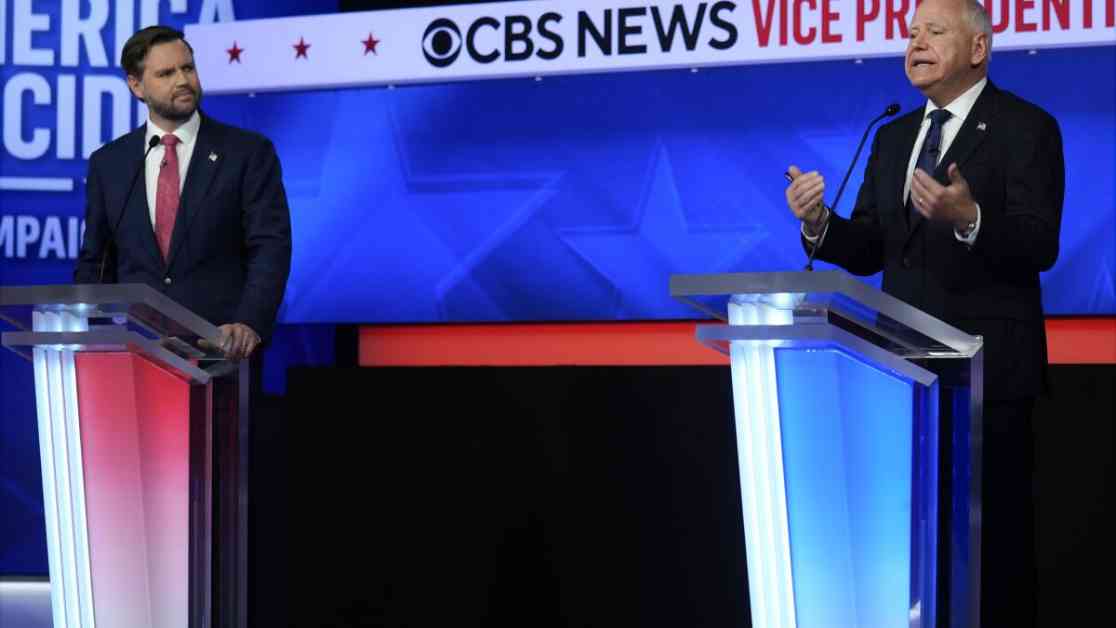In the recent vice presidential debate, the immigration stances of Republican candidate JD Vance and Democratic candidate Tim Walz were front and center. Vance emphasized the need for deporting immigrants who have committed crimes beyond illegally crossing the border. He also highlighted the importance of making it harder for those without legal status to find work in the U.S. However, Vance avoided addressing the issue of separating children from their parents and inaccurately stated the number of immigrants in the U.S. without legal status.
On the other hand, Walz blamed Trump for the lack of progress on bipartisan border security legislation and focused on appealing to moderate voters. The debate highlighted the contrasting views of the two candidates on immigration policy, with Vance blaming various societal problems on undocumented immigrants while Walz criticized the demonization of immigrants by the Trump administration.
Immigration has emerged as a key issue in the current election, with a majority of voters expressing a desire to reduce immigration levels. Vance’s controversial comments about Haitians in Ohio sparked a heated exchange during the debate, with Walz calling out the dehumanization of immigrants in political discourse. Despite attempts to address broader immigration policy issues, the debate largely failed to provide concrete policy solutions.
The failure of the bipartisan border security bill was a point of contention, with Walz emphasizing the need for increased border resources and Trump pressuring House Republicans to abandon support for the bill. The debate also raised questions about the candidates’ understanding of the economic and social implications of mass deportations, with experts expressing concerns about the potential chaos that could result from such policies.
Overall, the debate highlighted the deep divide between the candidates on immigration issues and the challenges of finding common ground in a polarized political climate. While Vance and Walz presented contrasting views on immigration policy, the lack of detailed policy proposals and the focus on rhetoric over substance left many questions unanswered. As the election approaches, voters will need to carefully consider the implications of each candidate’s stance on immigration policy and the potential impact on American communities.


























